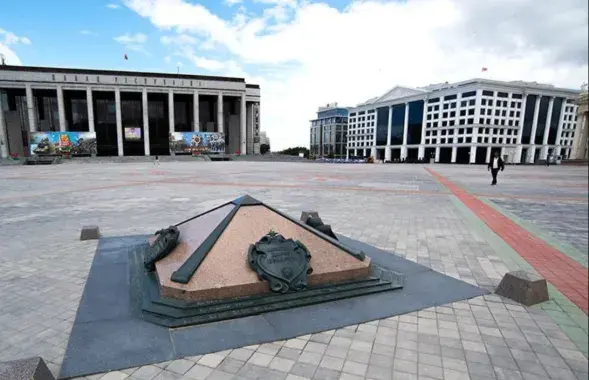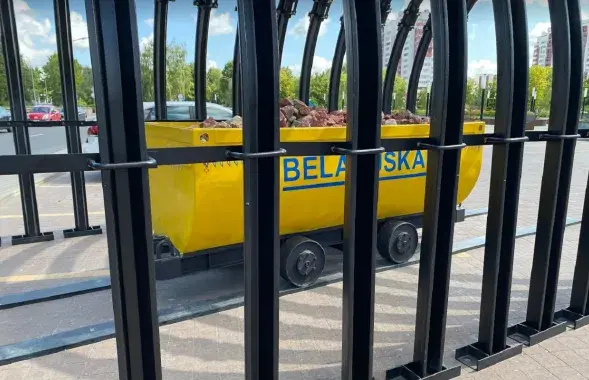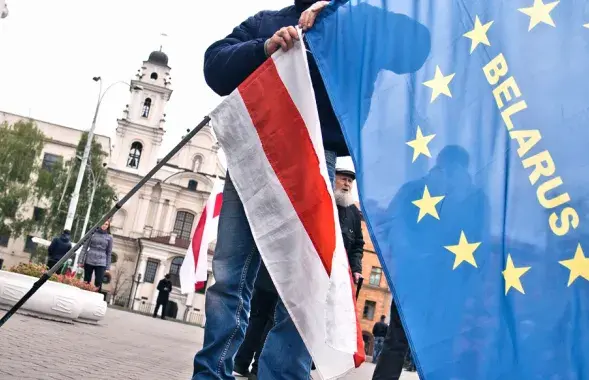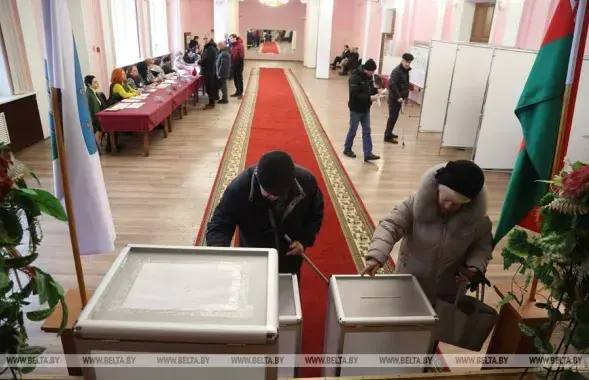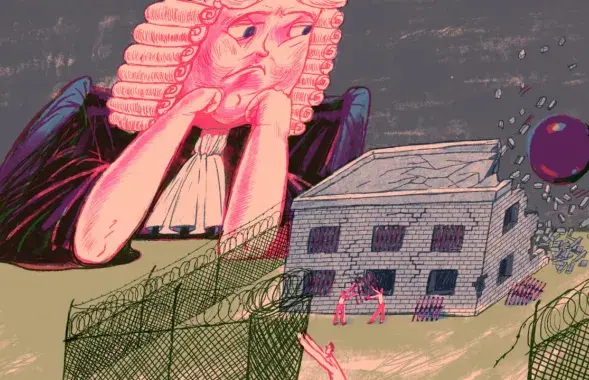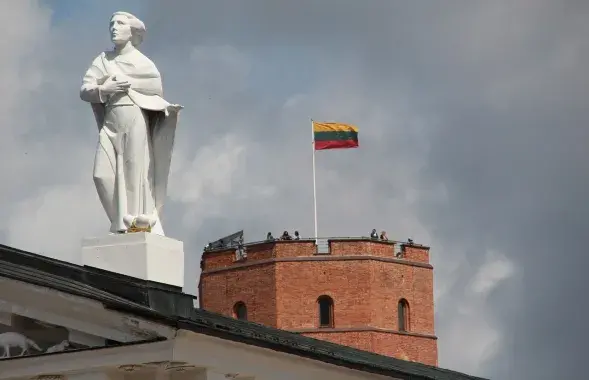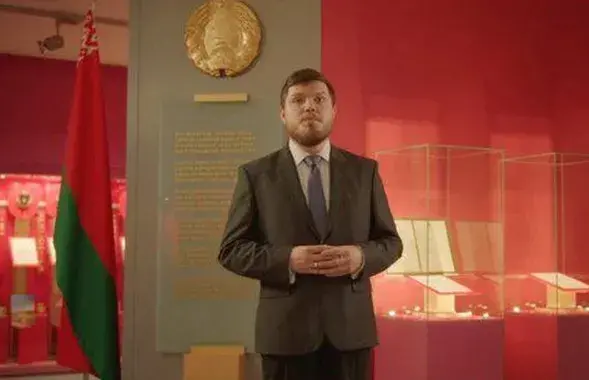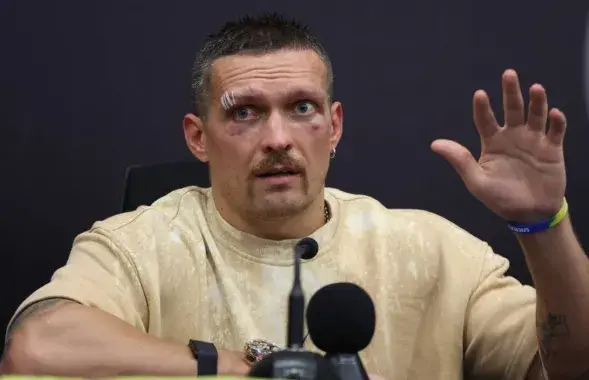Jean-Eric Holzapfel: “The release of political prisoners is the most sensitive issue”
Why do Europeans want to open a representative office in Belarus?
The opening of the European Commission’s office in Belarus is a normal step, because such offices exist elsewhere in the world. Belarus, for example, has its representation mission at the EU institutions in Brussels. Therefore, the opening of our representation in Minsk is a normal diplomatic step. Our mission will operate in various spheres. Firstly, this is about the cooperation and technical assistance within TACIS and EINPI programs. These are the bilateral programs, approved by the Belarusian government. Trade issues are another competence of a representative office. Thirdly, information is very important because the European Union aims to foster and strengthen relations between people in the EU and Belarus. That’s why we are interested in having people in Belarus to know more about the European Union. Finally, we will also be responsible for EU’s foreign policy, because the European Commission has a competence of defining EU’s foreign policy together with EU member countries.
Have you already discussed with the Belarusian foreign ministry the terms of the agreement? Have you faced any questions?
On October 23, the head of Belarus department at the European Commission met with Belarus’s representative Mr Syanko. Discussions have just begun, so we are not in the position yet to reveal the details of the negotiations.
During the negotiations, are you going to discuss the European Commission’s mandate in Belarus? Can the term of this mandate be limited like it is done with the OSCE’s office in Minsk?
The agreement on the opening of a diplomatic mission is a document whose term is not limited. Theoretically, the text may contain a wording which sets out a time limitation. But I personally have never come across this.
Do you feel that the process of consultation will be protracted? How much time can it realistically take to see the European Commission’s office actually opened in Belarus?
It is hard to say, because we are just at the very beginning of negotiations. At the moment, we are unable to say even approximately how much time it will take. It may happen very quickly or it might require more time. The speed depends on the process of discussions. Moreover, under the international practice, no information is made public before the negotiations are completed.
How the European Commission’s office in Minsk will be different from those in the European countries?
From a diplomatic point of view, there is no difference. However, as regards the operation of a representative office, there are some differences. The European Commission is not a separate country. Rather, it is a specific international organization which represents several member countries. In some fields, like trade, for instance, the European Commission has a clearly defined mandate. In the other spheres, the European Commission must act in collaboration with the EU member states. This applies to the cooperation and technical assistance. The European Commission has powers to implement TACIS and EINPI programs. This is the main difference. Besides, our informational and cultural activities differ from the work of embassies in such a way that we inform not just about one country but about the whole European Union and the processes of European integration. We also have a function of popularizing the knowledge of Belarus in Europe.
The European Radio for Belarus positions itself as a radio for the youth. We would like to ask if there are any projects for the youth at the European Commission.
We have several projects, for example, in the fields of sports and tourism. The first project aims to develop a network of bicycle tourism in cross-border areas. In general, the principle of our operation is based on project proposals. When we receive proposals for youth-related projects, we always welcome and support them. Our most important projects are the educational programs ERASMUS and TEMPUS. There is also a project titled “Children’s Right to Education” and many others.
Which Belarus’s neighbors have European Commission’s offices?
As for Belarus’s neighbors who are EU members, it is quite clear. EC’s offices are simply not necessary there. Russia, Moldova and Ukraine have our representative offices.
A question about the abolishment of EU’s trade preferences for Belarus. Initially, it was reported that Belarus would lose Euro 300 million due to this decision. If I am not mistaken, another figure of Euro 12 million was mentioned during a meeting with journalists in Brussels. What is the exact amount that Belarus loses due to the abolishment of trade preferences? Can anything change in this regard after the European Commission’s office is opened in Belarus?
I heard about the both figures, but I had no opportunity to check these reports personally. I also heard that Belarus’s possible losses could amount to Euro 12-20 million. However, in the both cases, it is not really noticeable at the scale of the whole country. Calculations are complex, so there are mostly assumptions.
As for your question if there is a connection between the issue of preferences and the issue of the opening of the office, I have to say those decisions are taken in parallel. Nations are deprived of trade preferences on the basis of recommendations from the International Labor Organization. So, whether a representative office is opened or not, it has no influence on the decision-making regarding EU’s trade preferences for Belarus.
Which of EU’s 12 proposals can Belarus accomplish already now?
I would like very much to have an answer to this question. The issue was discussed by EU member states. Unfortunately, there is no answer yet.
Are there any issues among these proposals which are a matter of principle for Europe?
All 12 proposals are principle. One can say that the most politically sensitive issue is the issue of the release of political prisoners.
Regarding the issue of political prisoners, do you manage to negotiate speaking the same language with the Belarusian authorities? Is it happening that Europe says that there are political prisoners in Belarus, while Minsk has responded until recently when Andrei Klimov was jailed that we have no political prisoners? Or, the European Commission says that the Belarusian government harasses the independent press, while the authorities respond that we have a lot of independent press.
I am not in the position to give out information about the contents of negotiations. I can say only one thing: the talks are being held on all 12 proposals.
Belarus citizens have to pay Euro 60 for a European visa. Do you think that this issue has turned from an economic into political one?
The issue is indeed very important. Talking about the advantages, it is noteworthy that together with the increased visa costs, people have the right to visit not just one country but several countries. In addition, the Schengen rules allow EU member states to issue free visas to some categories of people: e.g. students, etc. If Belarus were a full-fledged participant of the European Neighborhood Policy, a decision to reduce visa costs could be taken. This is what has been done for Russia and Ukraine. After all, visa issues lie in the competence of EU member states.
Photo: naviny.by


